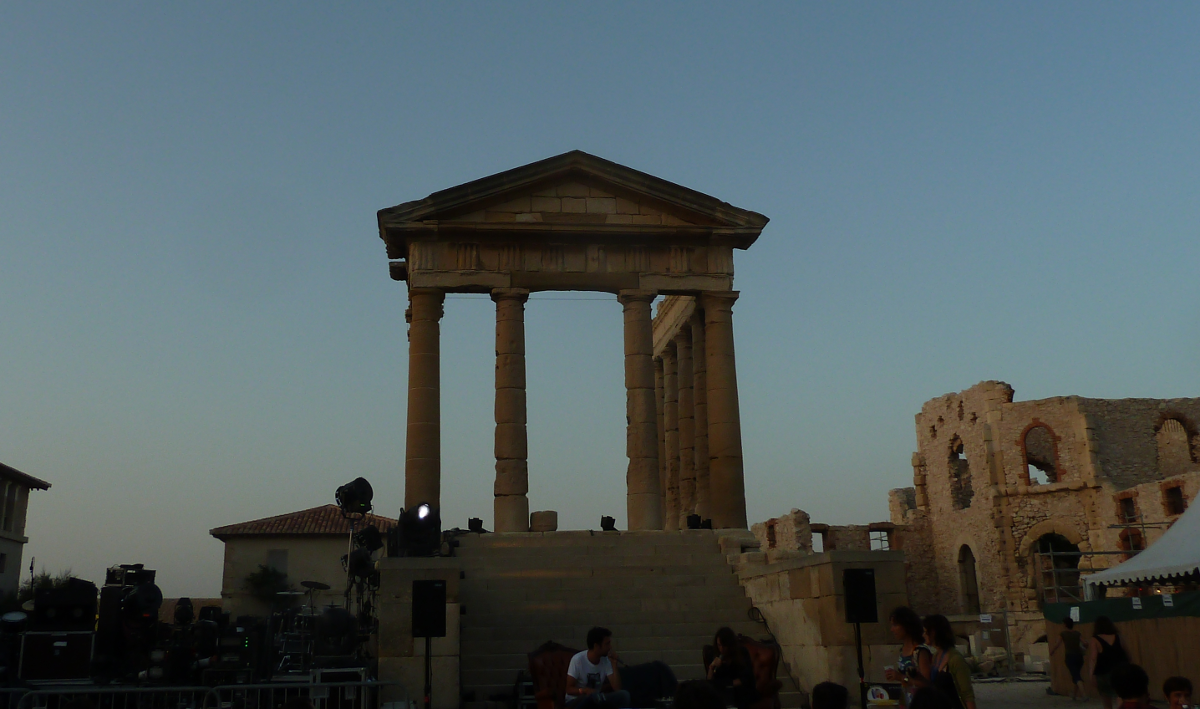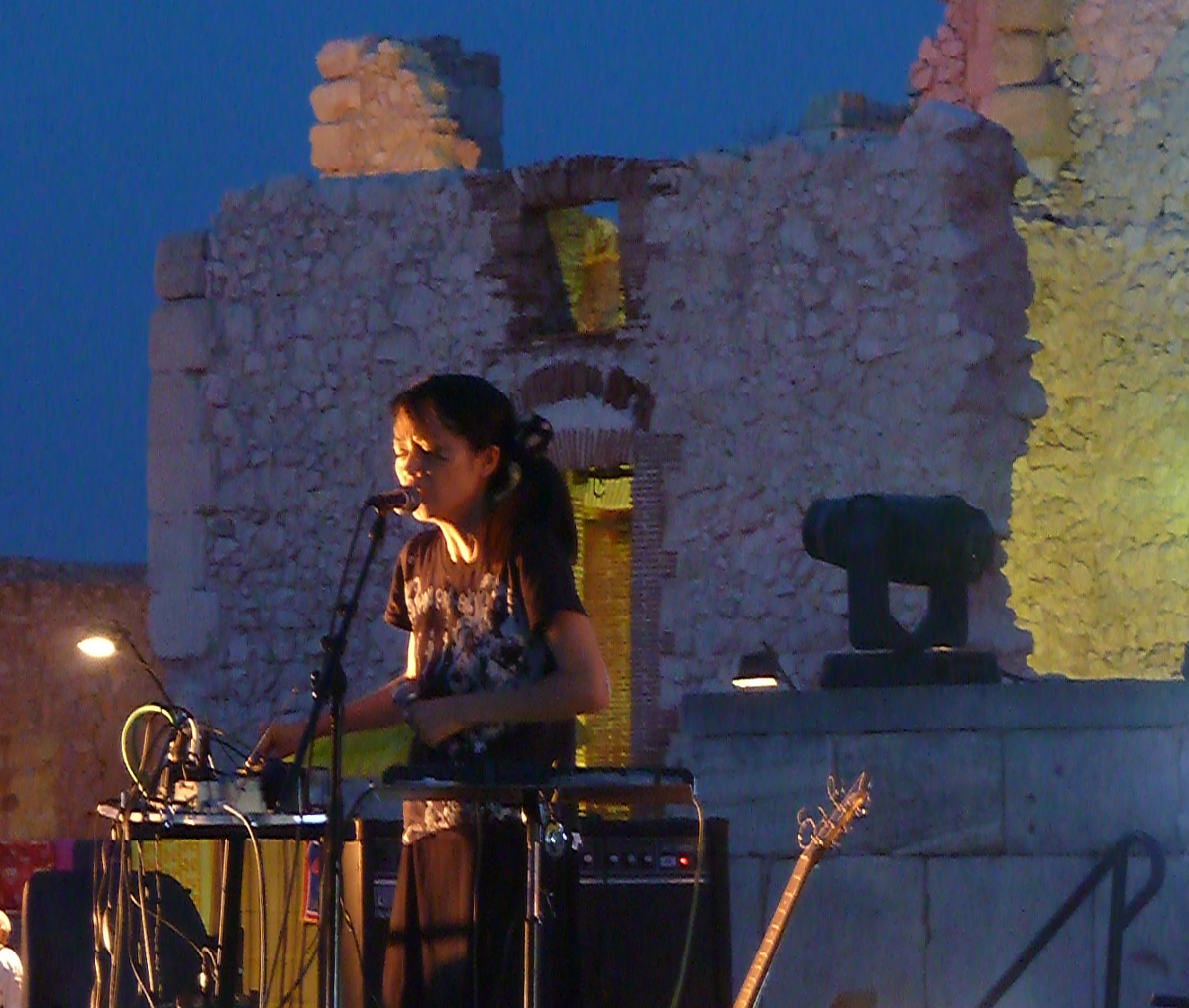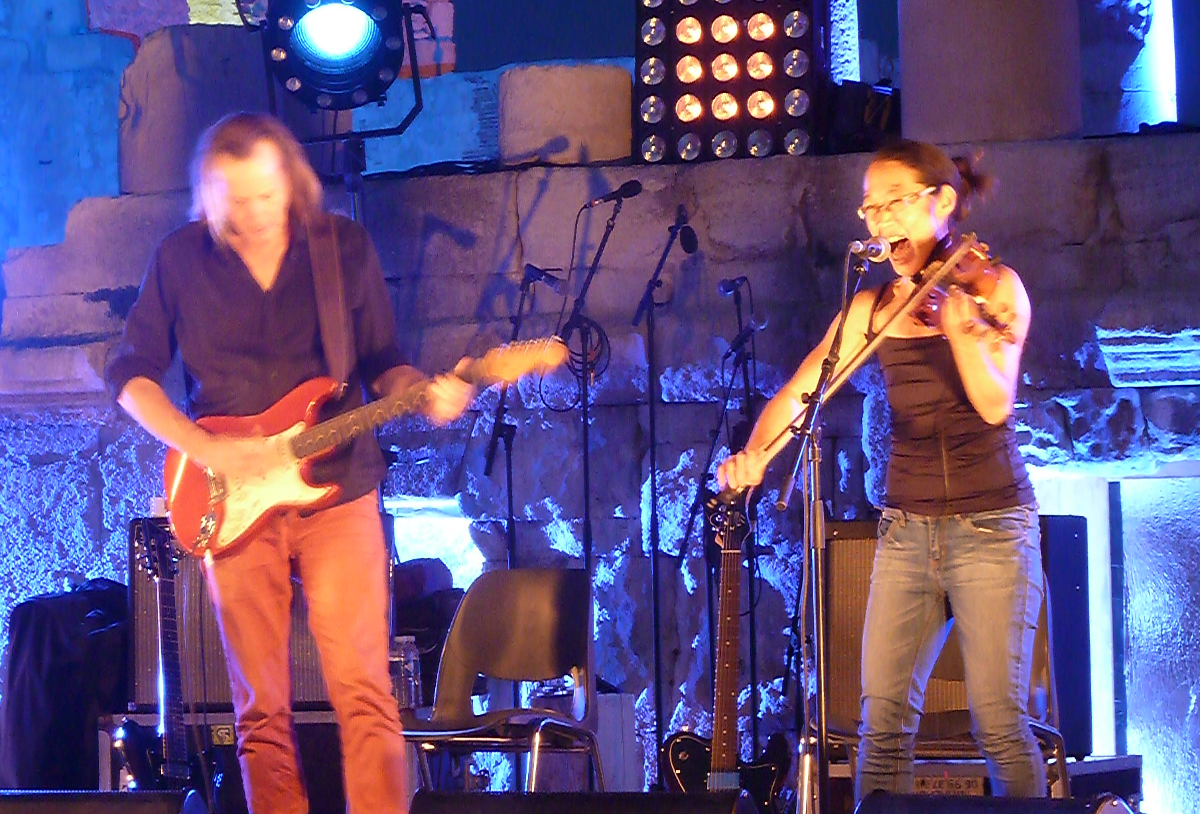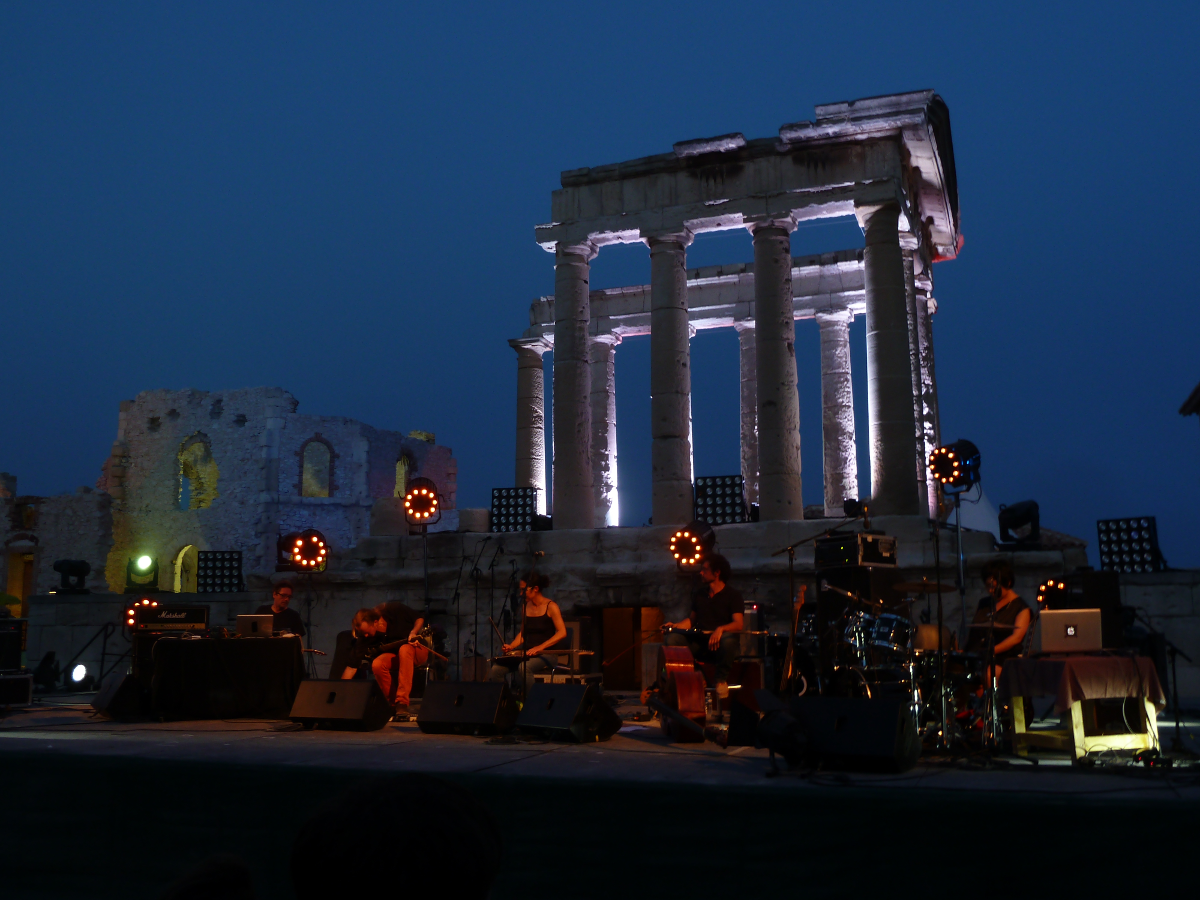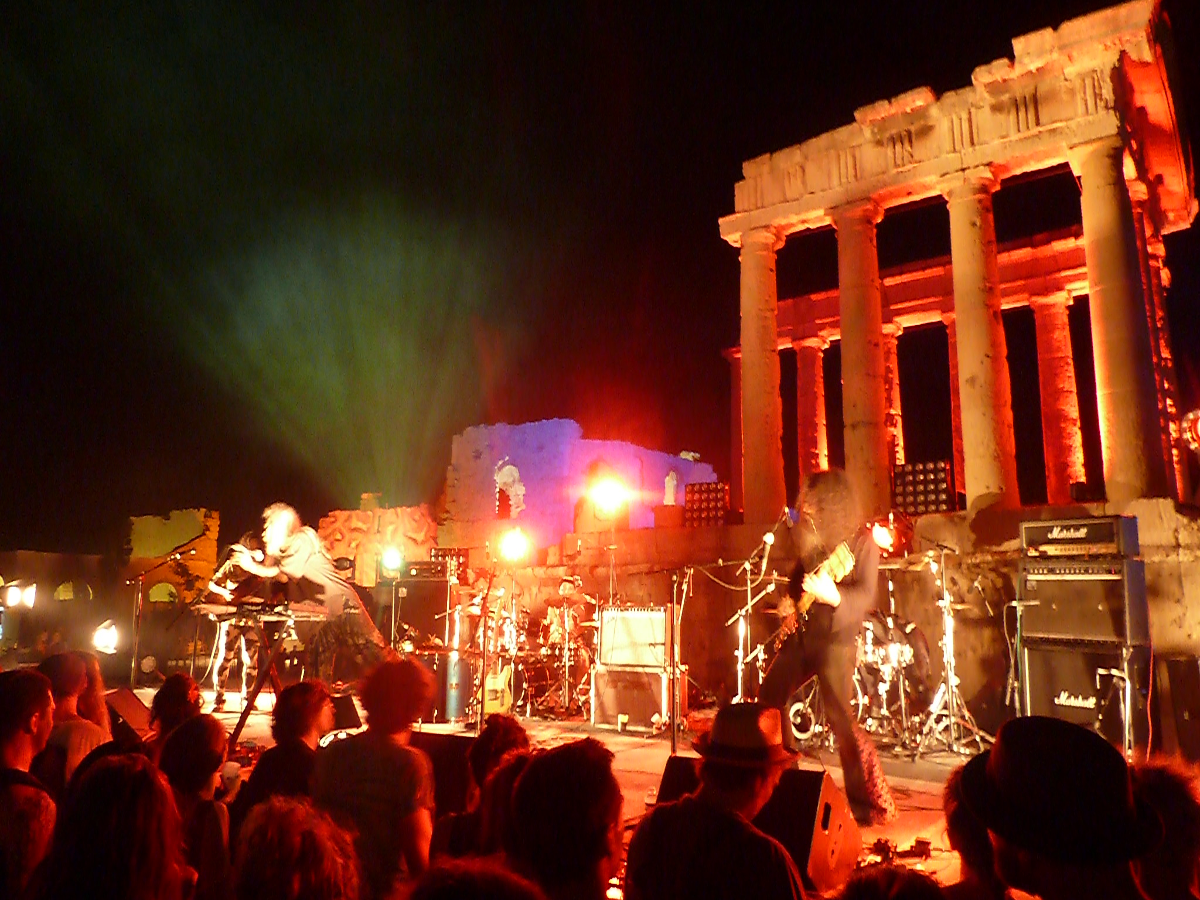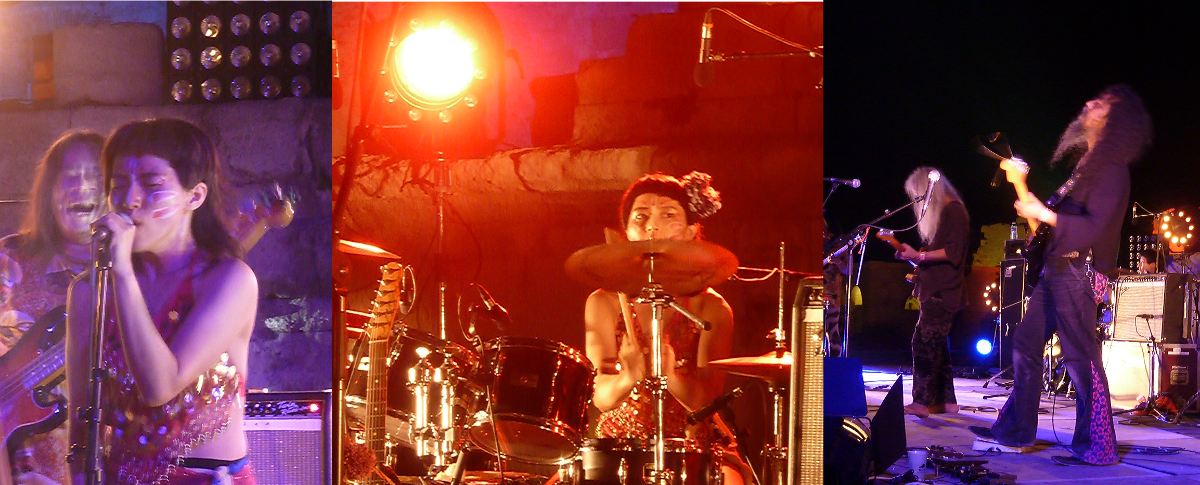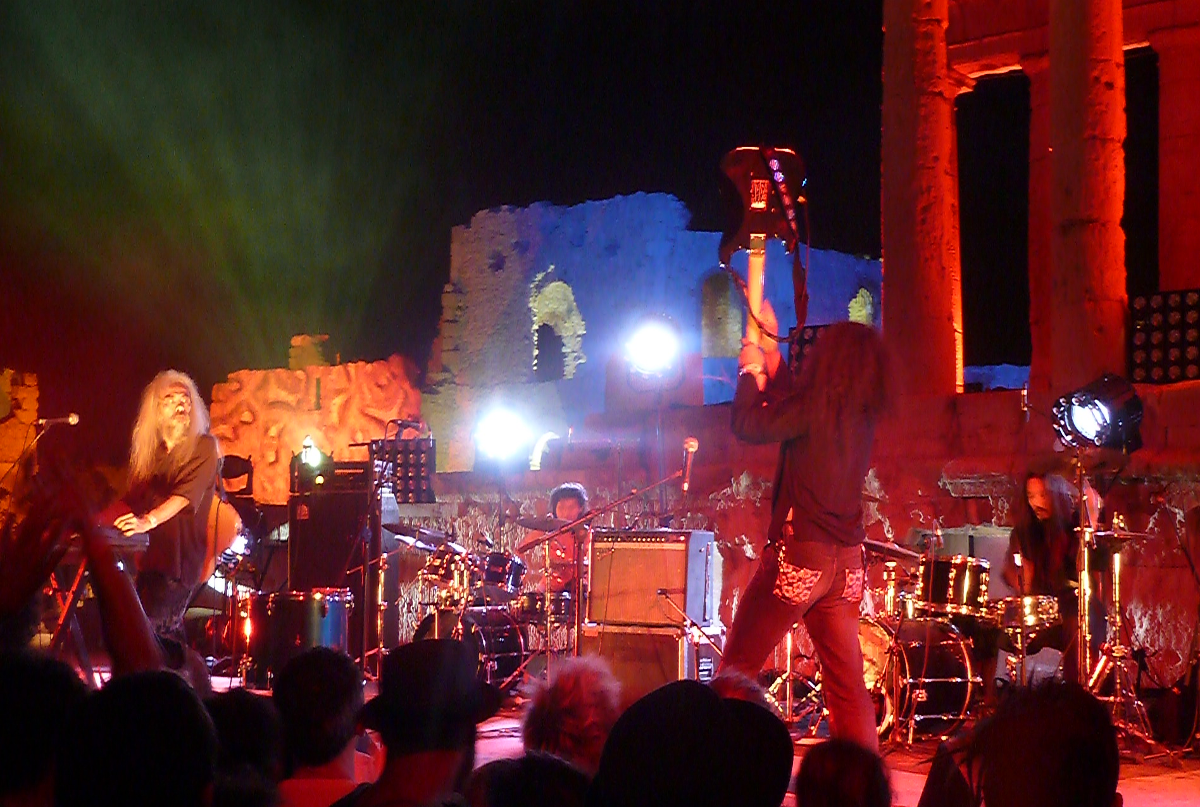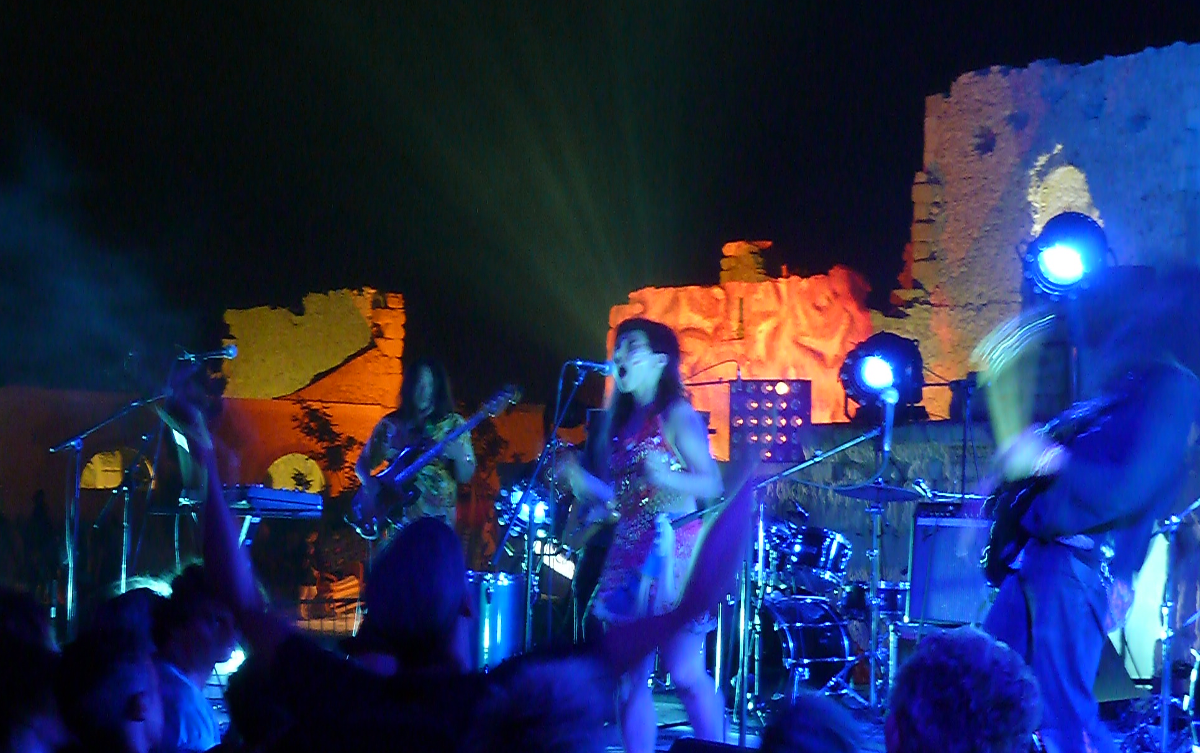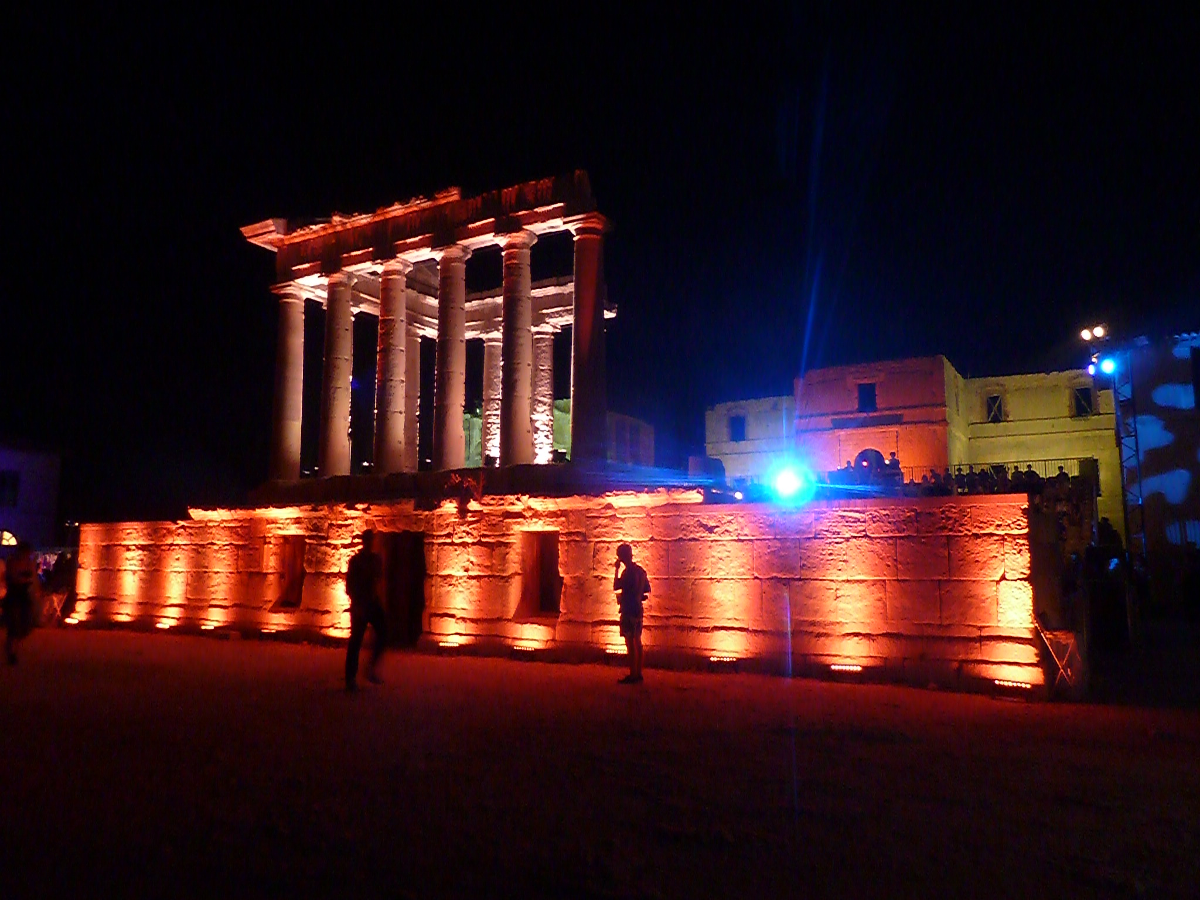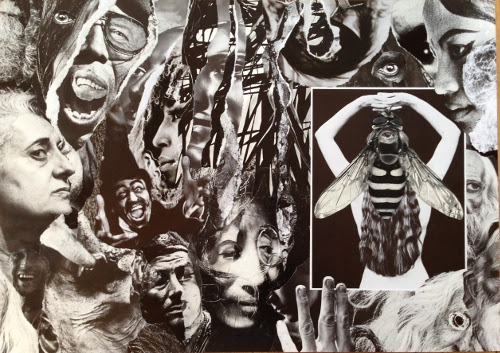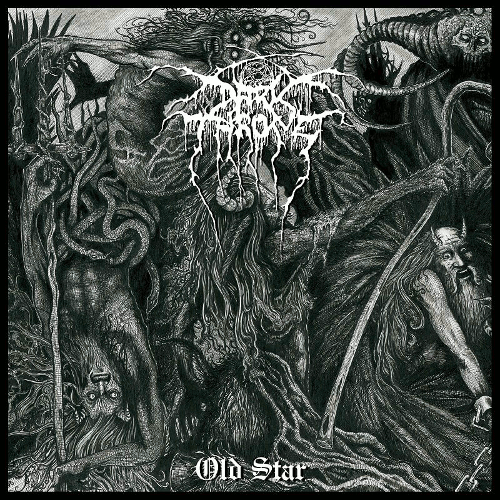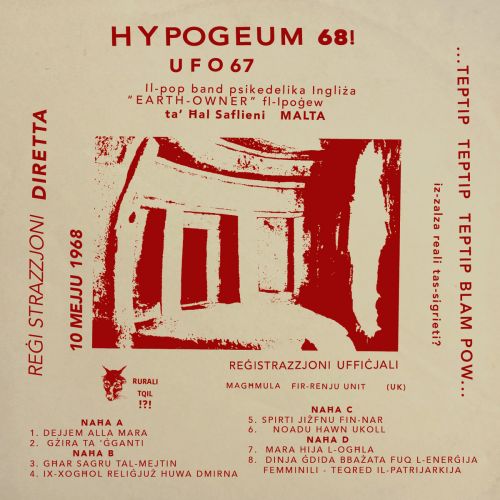Hôpital Caroline, Marseille
5 July 2015
Festival MIMI has been bringing all kinds of innovative, avant, experimental or just plain far-out music to Marseille for thirty editions to date, and for the last fifteen years its annual home has been in the splendid isolation of the ruins of the Hôpital Caroline on Ratonneau, largest island of the Frioul Archipelago, just off the coast and in sight of both the city and the more famous île d’If.
There’s plenty of anticipation built up in the sweltering wait in the Vieux Port in Marseille for the ferry boat — which is the only way to get to the festival — and then on the bouncing ride across the deep blue sea to the islands. Add in a gentle uphill trek (passing mysterious derelict buildings and aloe veras the size of small cars en route) to the gate of the hospital, and getting to the concert is an adventure in itself. Once inside, the way that everything is laid out in the central quadrangle is just about perfect, the central folly of a ruined classical temple providing a focus and a backdrop for the open-air stage, as well as a number of stalls selling books, records, clothing and other assorted merchandise.After a brief discussion of the history of Japanese psychedelic music between David Rassent and Cyril M, peppered with examples of some quite far-out sounds and a quick interview with Kawabata Makoto, the crowd begins to seat itself for the first act of the evening, Franco-Japanese ensemble Gunkanjima. They take the stage as the sun starts to set over the Mediterranean, lights springing up to illuminate the main buildings with different swirled patterns of light as well as the temple pillars themselves and the performers before them.
There are seven members of Gunkanjima (or Battleship Island, suitably enough) tonight, offering up contra-bass, violin, guitars, laptop, drumkit and an assortment of electronic devices, though surely the most formidable instrument is the multi-octave vocal range of Yoko Higashi, who lets rip on occasion with full-throated roar worthy of Diamanda Gálas. Opening with a heartfelt shout of “Vive la Grèce!” (the results of tonight’s referendum on whether to pay back the country’s troika of creditors not yet being known) from Higashi, followed by Takumi Fukushima‘s scraping violin bows and a battery and battering of the drums from Yuko Oshima while the rest of the group set up a low drone beneath. So the vocalisations start, looped and echoed over the drone bed, skrilling and trilling from noh to no-wave noise while Marc Siffert‘s contra-bass throbs out a low rumble at the furthest extremities of its strings, played well below the bridge and deep, deep down. Fukushima’s violin offers up pleasant melodic counterpoints to the guitar-bass-electronic skronk too, though her voice is almost as capable of bringing the roar to the party,shrieking over her strings in a shuddering blast of long-form vocal intensity.As their set proceeds, lit up by stop-start primal screaming and splashes of guitar, it becomes evident that it is all tightly under control, despite the appearance of a free-jazz rock freakout that they at first appear to be dishing out. While this is not a problem, it sometimes feels quite constrained or even unfinished, as when all seven musicians don guitars for an excursion into Glenn Branca territory without ever breaking out successfully into the transcendental point where the instruments really fuse completely into a wall of distorted sound and harmonics.
The septet are much more assured when they let their avant side run free and fearless, with interludes for electronic rhythms and sampled percussive crashes breaking out all over alongside the odd drum solo and synthy squigglefests. It’s Yoko Higashi’s extraordinary vocal acrobatics — of a kind that break speakers, let alone wine glasses — which really make the performance worthwhile; her voice is quite incredible, and she throws devils horns with unashamed glee at the conclusion of her terminal outburst to deservedly fulsome applause. After an unhurried changeover — why rush when the weather has cooled sufficiently to enjoy the balmy evening air and lack of mosquitoes? — Acid Mothers Temple (and The Cosmic Inferno in this iteration) enter the by-now fully darkened arena, puffs from a smoke machine highlighting the uplit stage and curling around the classical pillars. There’s the strong smell of another kind of smoke in the crowd too as the band kick off into a set which fulfils all their usual frenetic space rock tropes — Tabata Mitsuru hunched over his thundering electric bass, Okano Futoshi suave and svelte behind his drumkit, the pair setting out a steady rhythm section for the onstage gyrations of various sorts as the other band members proffer their various interpretations of how to freak out on a steamy summer’s night in Provence. Acid Mothers Temple are always the same, but still manage to be different enough each time to keep the invention flowing. As ever, Higashi Hiroshi is the eldritch, hirsute incarnation of the synth wizard, tweaking and twiddling a range of cosmic sounds from his vintage Roland synth at the stage front with all the energetic aplomb of a conjurer bedazzling his audience with a succession of magical sonic tricks. Makoto’s flares are a cause for wonder in their own right, and it’s easy to forget just how much work goes into making it all seem so effortless, so fluid. Tonight it’s Pika☆ (of Afrirampo) who gets to be the focus of the crowd’s adoration, bringing some energetic Afrirampo percussion manoeuvres front and centre to set the masses moving in concert with Futoshi’s steadier beats. The frenetic psychedelic grooves of the two drummers and the mighty Tabata rhythm section pumping out the energy while Higashi locks into his disconcertingly outré SH-2(000) metre stares as he manipulates his synth or plays guitar.All the while, Makoto gives the aufdience what it’s been waiting for in waves of six-string synaesthesia, letting the guitar sparks fly as only he can when he’s truly on one, fingers flying everywhere that the fretboard can accommodate to brain-blistering effect. This is especially true during a blissfully-charged “Pink Lady lemonade”, which is tonight given its proper space to breathe, flow and expand consciousnesses everywhere in the archipelago, Makoto’s consumate showmanship driving his guitar in circles, up, down and around in every which way and loose.
Pika takes the lead during a heartfelt and very moving tribute to former AMT collaborator Daevid Allen as the band kick into a fulsome rendition of Gong‘s “Flying Teapot”. She cavorts around the stage while waving a set of feathers — or is it long grasses? — and if any band could summon the proper spirit of classic psychedelia as expressed through the medium of a song about teapots in outer space, it’s AMT (who of course also played with Allen and company as Acid Mothers Gong too).There’s not much time to stop for a nice cup of tea (even if the bar has plenty of beer and wine still) though, and Pika throws a host of paper plates into the crowd and generally had a good old freakout, dancing her heart out as the rest of the band rock away like maniacs. No doubt Daevid would be proud of his old friends as they pay suitably energetic and deranged tribute to the inspiration and memory of a genuine hero of the lysergic underground.
As the music approaches its peak, the crowd dancing down front goes predictably wild, one generous soul diffusing the air with a hand-held water spray in an act of random kindness, and Acid Mothers Temple take it further out in stages most musicians probably didn’t even know existed. “Do you like disco?” asks Makoto when they come back for what turns out to be their only encore of the night. “Doobie Wonderland” is the answer, and hundreds of pairs of hands clap along while Makoto’s chickawaka guitar sets the cosmic discotheque on fire as Pika grooves it up, dancefloor moves and all.Tthe only thing really missing at this point is a bubble machine (or some foam, maybe…) and it would have been the perfect antidote to a billion more average all-night parties held on the less salubrious clubs which populate the islands at the western end of the same sea. But Ibiza this isn’t — despite the funk, Acid Mothers Temple can’t leave out the space rock component, and spasm into the intergalactic reaches where both Donna Summer and Hawkwind reign supreme.
Thanks to the logistics of winding everything down, the party can’t continue into the night, and while there’s an hour or more to wait for the last ferry back to the mainland, there’s no more music tonight. A real shame, as Acid Mothers could — of course — have gone on playing much longer, but such are the necessities of holding a magical event like this in the Calanques national park where the protected animal inhabitants deserve a good night’s rest. Marseille is fortunate to have such a festival on hand each year, and such things should be treasured. Tonight, Acid Mothers Temple and Gunkanjima have done the city, and the festival, proud.-Richard Fontenoy-
